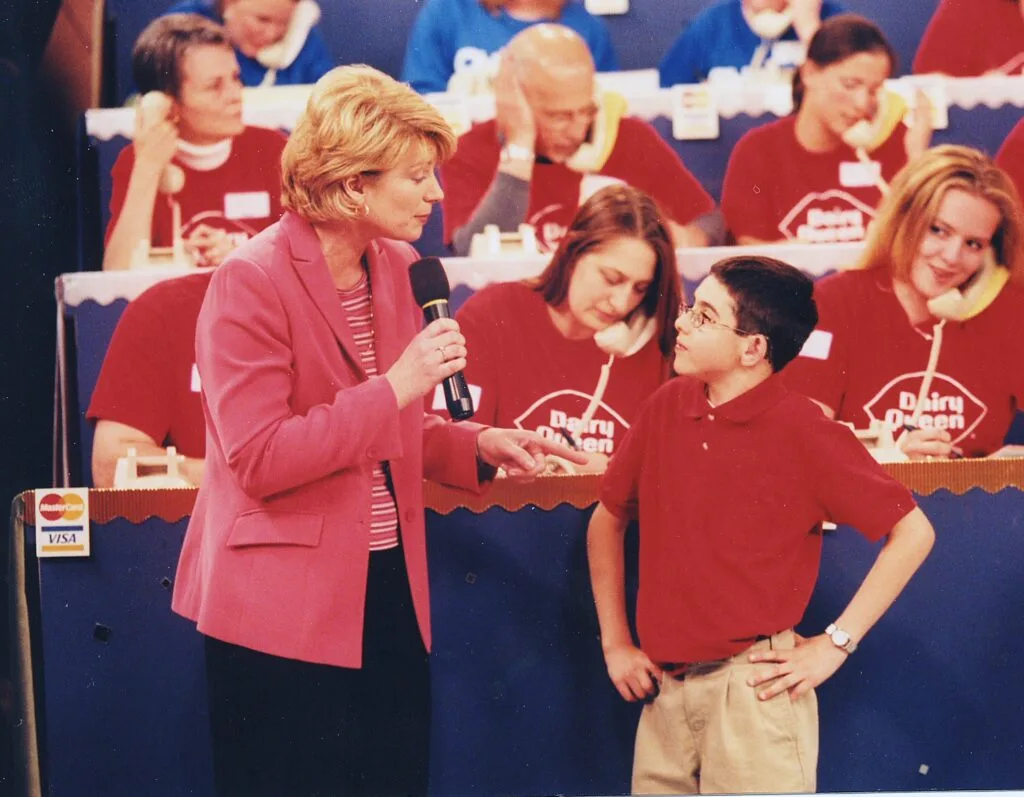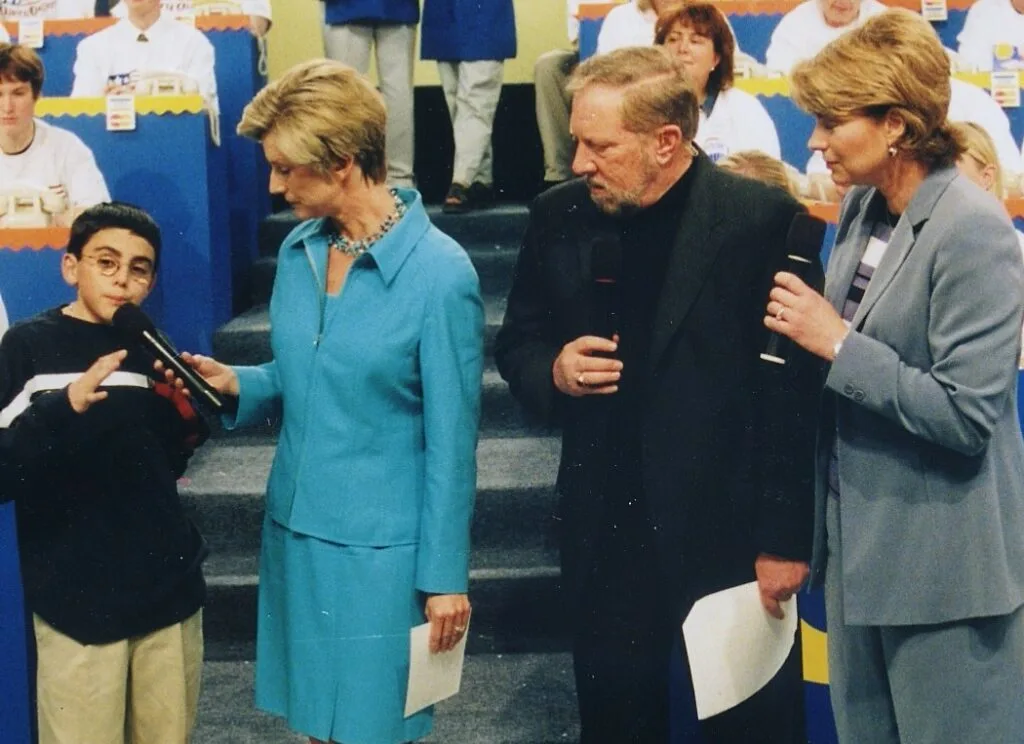Parents teaching children to be their own advocate is the lesson of a lifetime
It’s not unusual for parents to advocate for their children, even if they’re not blind or low vision. But like many parents, Wendy Hardman and her husband, John did something even more valuable for their son, Cole: They taught him to speak up for himself from the start.
Cole, now 34 years old, was born prematurely, making his family’s experience worth sharing during National Prematurity Awareness Month. Like many children born pre-term, Cole entered the world with complex medical needs. At birth, Cole’s diaphragm had a hole in it – a diaphragmatic hernia – and only one lung had developed, so his stomach had grown up into the area where his other lung should have been. Some of the medicine Cole needed damaged his hearing, and he was also born with nystagmus, which means his eyes move back and forth, all due to his diaphragmatic hernia. The day he was born he had a six-hour surgery and was in the hospital for nine months.
“They told us he would not live past the age of two and he would slowly suffocate, but some miracle happened, and his chest wall kind of tilted in the right way so his one lung could grow,” Wendy says. “That’s how Cole is: he survives and thrives. But it wasn’t until he was two or three years old that we realized how serious all his challenges were.”

From the beginning
Wendy had some experience with vision loss because her sister has serious eye issues and is now blind. But her family has always been a glass-half-full kind of family. “My father always said that Cole was not handicapped but handi-capable,” she says. “Whatever our challenges were, we were going to solve them.”
Working as a family to champion Cole – setting an example for him in the process – starting with Kindering in their hometown of Bellevue, Washington. This early intervention and education center taught Cole many valuable skills to manage his vision loss by the time he was three years old.
When he started kindergarten, Cole’s parents worked with the school’s special education teachers and helped develop an Individualized Education Plan (IEP) for him. By the time Cole was in middle school, he was running his own IEPs, and Wendy would watch.
“He’s got great advocacy skills, and he was willing to have people take notes for him or help him be successful in other ways,” she says.
In fact, his skills were so strong that Cole became a spokesperson for United Way at an early age, giving presentations starting when he was just seven years old. He even presented at Microsoft in front of thousands, where he met Bill Gates. According to Wendy, Cole continued serving as a spokesperson for many years.
Skill in Practice
At 14, Cole joined the YES program by Washington’s Services for the Blind. This summer initiative taught him crucial skills. He lived in a Greek-system house at the University of Washington. He learned cooking, and used public transit for his job commute.
“Although he does have some vision and hearing, he uses hearing aids and is considered legally blind,” Wendy says. “Cole has always found his way. We worked hard to teach him how to be champion himself, and when he did have challenges we couldn’t tackle, we’d sit down and talk about them as a family. My motto is ‘There’s always a way to make it work.’”
For example, when Cole wanted to be on the basketball team, Wendy was concerned for his safety because he was smaller than kids his own age. After talking with the director of parks, Cole was put on a team with younger kids to help coach and lead them as a mentor. “It worked out great,” Wendy says. “That’s how we approach things.”

Independence long before adulthood
The same philosophy carried over to the high school. Cole attended a private school, and private schools aren’t required to provide the same services like public schools. But the smaller class sizes made for a better learning environment and allowed him to put his self-advocacy to good use.
“Cole did a marvelous job teaching the counselors and teachers how to advocate for somebody with disabilities,” Wendy says. “We always told him that to be successful, he would need to find a way to even the playing field. I encouraged him always to be kind about it, but to take a problem-solving approach and explain what he needs if it wasn’t being provided.”
His parents continued to be involved. For example, John taught Cole all about financial literacy and being fiscally responsible. Toby, Cole’s brother, always supported him, teaching sports and social skills throughout their childhood. Entering the University of Puget Sound, Cole was skilled and confident. Post-graduation, he spent six years at United Way and now works at Seattle Children’s Hospital.
“He’s an amazing fundraiser, and he’s so passionate about his work,” Wendy says. “We’ve always trusted him to make good decisions and he is a very wise soul at his age today. He’s been through a lot, and we consider ourselves lucky that things turned out so well for Cole.”